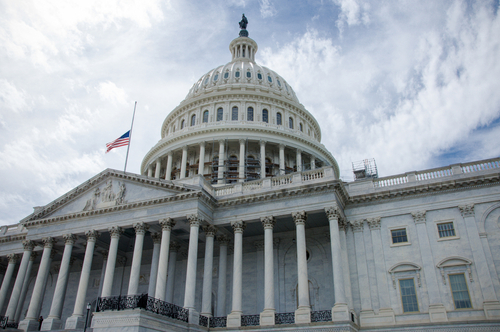
On Monday, Republicans on the House Committee on Homeland Security applauded the passage of three bills countering Chinese influence on homeland security and the fentanyl crisis out of committee.
U.S. Rep. Mark Green, MD (R-TN) said the committee had advanced three bills out of committee that counter the Chinese Communist Party’s influence on homeland security as well as on the destructive activity of drug cartels. The legislation, HR 8631, the “Decoupling from Foreign Adversarial Battery Dependence Act;” HR 8663, the “DETECT Fentanyl and Xylazine Act of 2024;” and HR 7404, the “Subterranean Border Defense Act” will now be considered by the Senate.
“The House took decisive steps today to combat the ever-growing malign influence of the Chinese Communist Party in our homeland, and I’m proud of our Committee’s leadership in getting these bills across the finish line,” Green said. “The House of Representatives also passed two more Committee bills to combat Communist China’s deadly fentanyl supply chain across our Southwest border, which Beijing accomplishes with the help of criminal cartels. I’m proud of Congressmen LaLota and Crane’s leadership introducing bills to improve fentanyl interdiction and DHS’ mission to counter the insidious tunnels cartels often use to smuggle this poisonous drug––both commonsense pieces of legislation to close DHS capability gaps and help save lives amid this historic border crisis.”
The Decoupling from Foreign Adversarial Battery Dependence Act was introduced by Rep. Carlos Gimenez (R-FL) and would prohibit the Department of Homeland Security for purchasing batteries from six major companies owned and operated in China, Contemporary Amperex Technology Company, Ltd. (CATL) and Gotion High Tech.
“The United States must decouple from Communist China in all facets of our lives,” Gimenez said. “With this bill we reaffirm our commitment to decoupling ourselves from Communist China by calling on our own domestic industries to produce critically important materials. We were already late to recognize the PRC’s battery threat, and we cannot afford to do it again. We must proactively stay ahead and address these threats that undermine the U.S. supply chain and leave our national security at risk.”
The DETECT Fentanyl and Xylazine Act of 2024, was introduced by U.S. Rep. Nick LaLota (R-NY) and will provide DHS’ Science and Technology Directorate with authority to research, test, evaluate and analyze ways to improve the safety, effectiveness and efficiency of drug detection equipment and reference libraries used by federal, state, local, tribal and territorial law enforcement agencies.
“The House has just passed the DETECT Fentanyl and Xylazine Act, a vital step toward addressing the deadly opioid crisis sweeping our nation. This bipartisan legislation will empower law enforcement with cutting-edge technology to detect and stop the flow of lethal substances like fentanyl and xylazine before they reach our streets,” LaLota said. “With over 107,000 overdose deaths last year alone, this bill is a critical measure in saving lives and protecting communities across America. I am deeply grateful to my colleagues in the House for recognizing the urgency of this crisis and swiftly passing this critical legislation and I urge the Senate to do the same.”
Finally, the Subterranean Border Defense Act was introduced by U.S. Rep. Eli Crane (R-AZ), and would require U.S. Customs and Border Protection (CBP) to report to Congress annually on its strategic plan to identify and remediate illegal cross-border tunnels into the United States.
“Passage of this bill is a massive win for our security,” Crane said. “This legislation would help forge a desperately needed layer of defense by ensuring that Congress has the necessary data to address the deadly threat of cross-border tunnels. I’m grateful to Chairman Green for his support of my bill and for his distinguished leadership of the Homeland Security Committee.”




